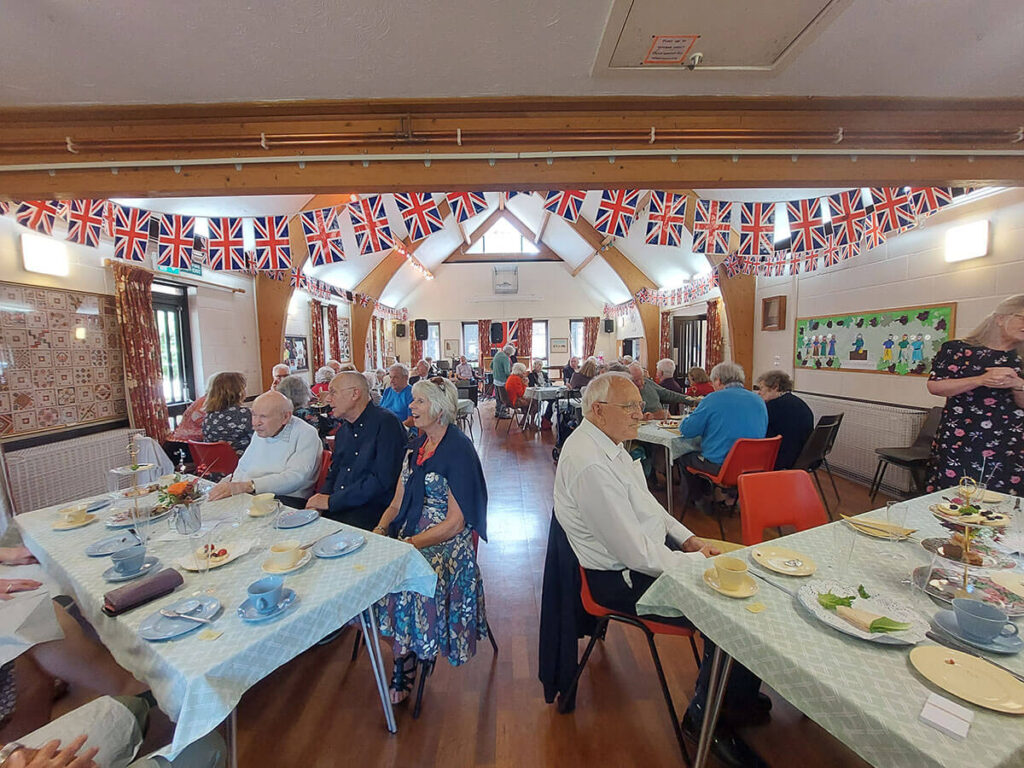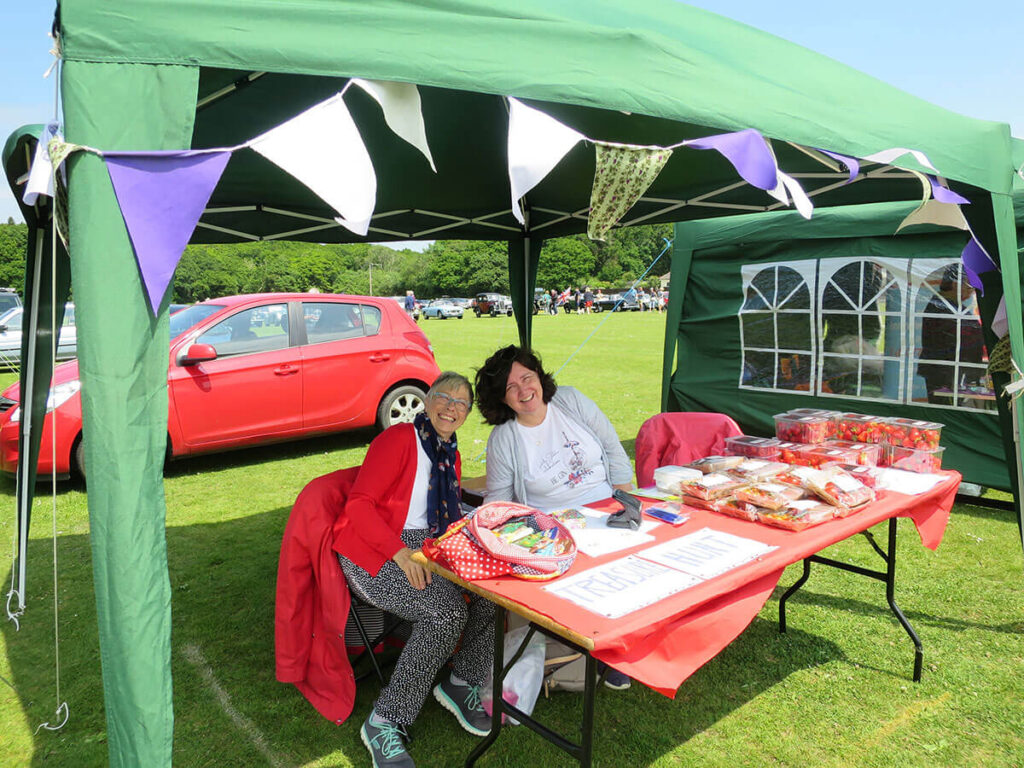Thursday 6th June dawned bright and over 60 village residents came together to commemorate the D-Day landings. Councillor Carol Rook led the service with readings from local veteran Gordon Pound. In the evening, New Forest Big Band entertained a packed Social Club for a swing night, the evening was one of celebration with songs and […]
The days leading up to our Coronation Fete were sunny and mild but, unfortunately, May 8th dawned overcast with drizzle which became quite heavy. However, undeterred committee members and our amazing team of volunteers under the stewardship of Steve Day, set about putting up the gazebo’s for the afternoons fun & games – although the […]
It was an incredibly windy day yesterday. The Isle of Wight recorded winds of up to 96 miles per hour in the middle of the day. I had been quite oblivious to this fact, not having listened to the radio with its warnings not to go out unless you must. We had run out of […]
A wonderful afternoon celebrating HMQ
A fabulous time had by all!
I quite often get asked, “which council should I go to” for this and that, so I thought it may be useful to set out the main responsibilities of each council once again, particularly for new residents recently moving into New Milton or its surrounding areas. Firstly, there is your very local town or parish […]
We are Conservation Connection (a group of your own local conservation and wildlife enthusiasts and experts) and we want you to join our New Forest Big Bee Rescue this spring, a huge joint effort to make our area a wonderful place for our bees to live and thrive. We even have Jimmy Doherty’s personal endorsement […]
My first New Year’s visit to Hampshire County Council was to attend a Cabinet meeting where progress on the council’s Climate Change Strategy and Action Plan was reported. The strategy is based on “stretching but achievable” targets to 2050, in line with the national target, with an eye to bringing that target forward, if assessed […]
Last year the Organisers of the Everton Village Festival, claimed they had held the most successful Festival ever. This year that success was repeated with added pzazz. The week long events took off in the style that Villagers look forward to. The ‘Summer Serenade’ started the week, a classical concert, by the Palm Court Ensemble. […]
It seems that the public consultations for the forthcoming doughnut are a moot point – it’s all a done deal anyway according to this chap: [videostart] https://www.youtube.com/watch?v=jj9zck6dEGk [videoend] = “In this area we have urban areas, but those urban areas don’t have large areas of derelict brownfield land. In some parts of the country there […]









